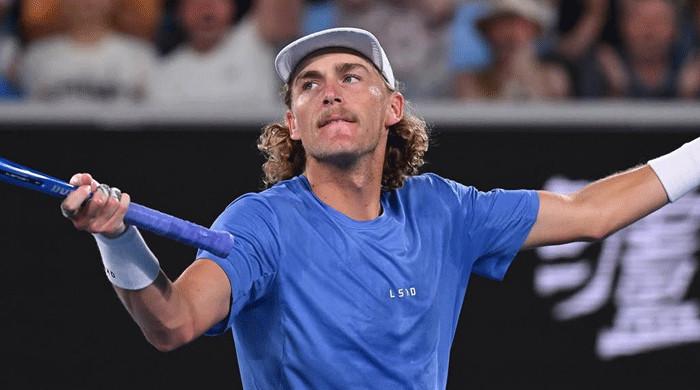Purcell Accepts Doping Ban, Suspension Ends in 2026
SYDNEY: Max Purcell, the Australian tennis player and two-time Grand Slam doubles champion, has accepted an 18-month suspension for violating anti-doping regulations. The International Tennis Integrity Agency (ITIA) officially confirmed the ban on Tuesday.
The 27-year-old athlete began serving his suspension voluntarily in December 2024. He admitted to using a prohibited method, expressing his disappointment and affirming that he did not intend to violate any rules.
His suspension is scheduled to conclude on June 11, 2026, factoring in the time already served.
The ITIA reported that Purcell had received intravenous infusions exceeding the allowed 100-milliliter limit on two occasions in December 2023, each time receiving over 500 milliliters.
Purcell acknowledged the violation but stated that he had informed the clinic about his status as a professional athlete and the necessity to remain within the permissible volume limit.
The ITIA stated that Purcell’s penalty was reduced by 25% due to his extensive cooperation during the inquiry.
“The ITIA informed the player of a possible Anti-Doping Rule Violation (ADRV) on December 12, 2024. On that same day, the player requested a voluntary provisional suspension, which was immediately put into effect,” the ITIA reported.
“Following an exhaustive investigation by the ITIA, including gathering evidence and interviewing the player, Purcell admitted to the breaches. His full cooperation and shared information resulted in a 25% reduction in the sanction.”
Purcell, who attained career-high ATP rankings of World No. 8 in doubles and No. 40 in singles, secured the Wimbledon doubles title in 2022 and the US Open doubles title in 2024.
Addressing the ruling on Instagram, Purcell spoke about the impact on his mental health and daily life:
“This case has been ongoing for months, severely impacting my quality of life. From struggling to sleep and eat and avoiding being alone, to developing nervous and anxious tics that I still face daily,” he shared.
“I couldn’t relax and enjoy anything without worrying about the case and the potential consequences. I fully cooperated with the ITIA. I’m relieved this is over, and I can move forward.”
He clarified that the infusions contained only WADA-approved substances and were administered at a medical facility when he was feeling unwell while training abroad.
“The ITIA accepted that exceeding the 100ml limit was unintentional. This case is solely about surpassing the allowable volume,” he said.
“All substances used were WADA-approved and provided no performance-enhancing benefits. The infusion occurred 11 days before my season’s first match, at a 24/7 medical facility.”
ITIA CEO Karen Moorhouse commented on the outcome, highlighting that anti-doping regulations include more than just banned substances:
“This case doesn’t involve a positive test for a prohibited substance but shows that anti-doping rules are comprehensive,” Moorhouse stated.
“It also demonstrates that the ITIA leverages intelligence from various sources to safeguard all players under the tennis anti-doping program and guarantee fair competition.”



Comments (0)
No comments yet. Be the first to comment!
Leave a Comment